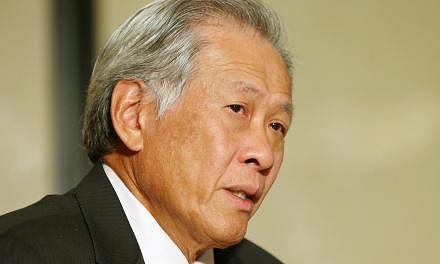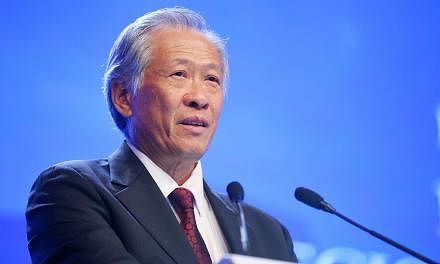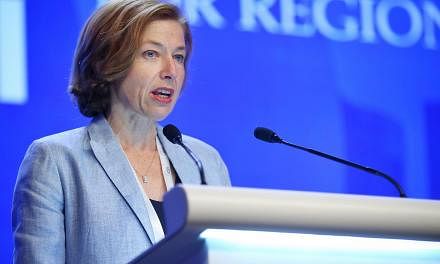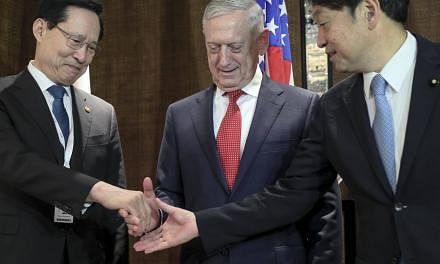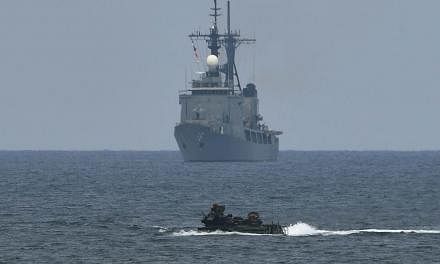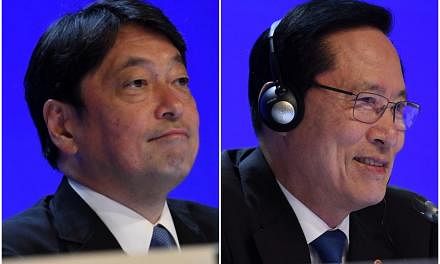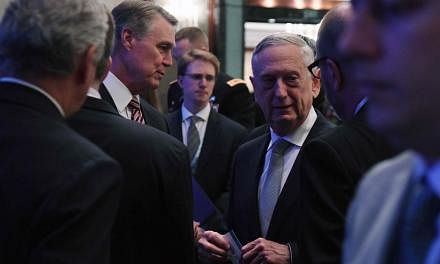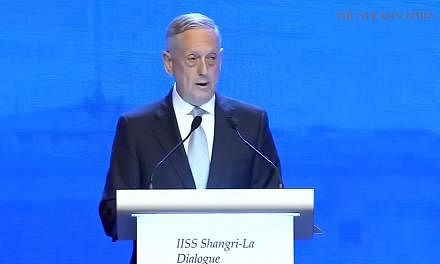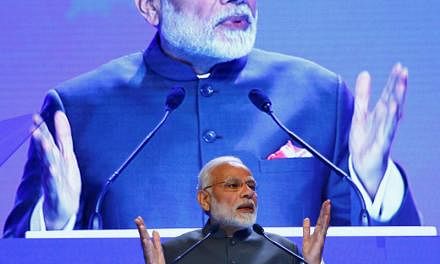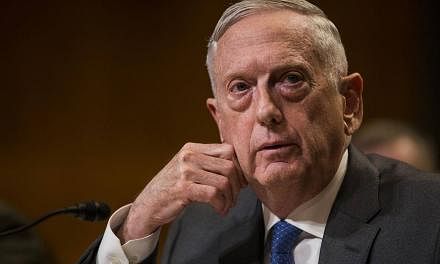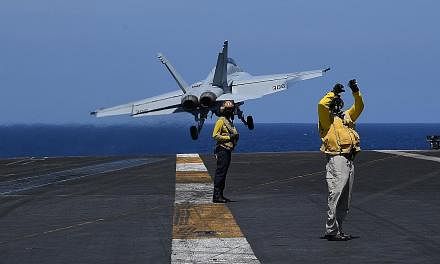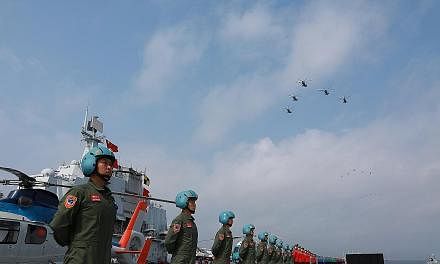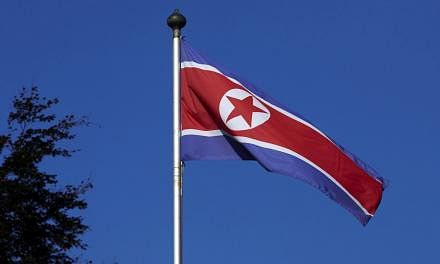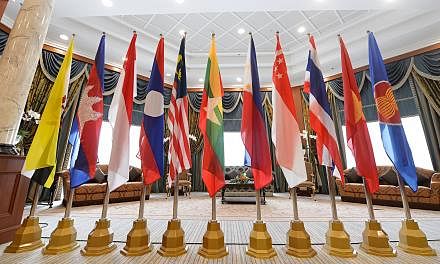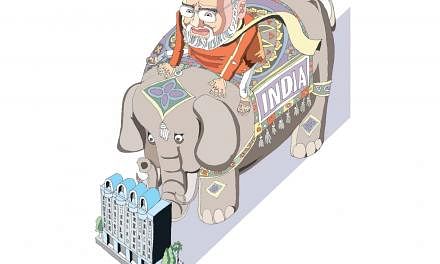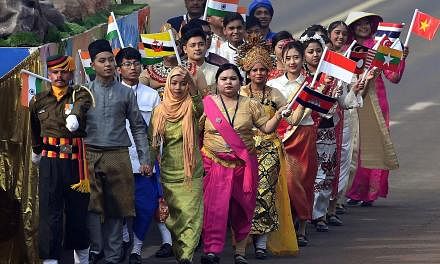SINGAPORE (BLOOMBERG) - North Korea will get relief from international sanctions only when it has shown irreversible moves toward denuclearisation, US Secretary of Defence James Mattis said ahead of a summit on June 12 between President Donald Trump and North Korean leader Kim Jong Un.
"We can anticipate, at best, a bumpy road to the (negotiations)," Mattis said before the start of a meeting with his South Korean and Japanese counterparts on the sidelines of the Shangri-La Dialogue in Singapore.
"As defence ministers we must maintain a strong, collaborative defensive stance so we enable our diplomats to negotiate from a calm position of strength in this critical time," Mattis said.
He added that all United Nations Security Council resolutions on the regime must stay in place. "North Korea will receive relief only when it demonstrates verifiable and irreversible steps to denuclearisation," Mattis said.
His comments came after Trump conceded that North Korea won't agree immediately to give up its nuclear arsenal, and seemingly walked back expectations for a quick deal from his planned June 12 Singapore meeting with Kim.
Asked Friday about the vaunted "maximum pressure" campaign of sanctions enacted to rein in North Korea, Trump said, "I don't want to use that term. Because we're getting along."
The US has previously insisted that North Korea give up all its weapons before it can shed its pariah status or get any relief from sanctions. North Korea has bristled at the idea, and it's unclear if the two sides will be able to bridge their differences enough for the meeting to be deemed a success.
No Kwang Chol, the head of the ruling Workers' Party's second economic committee, was chosen to replace Pak Yong Sik, who served as defence chief since May 2015.
Japanese Defence Minister Itsunori Onodera told reporters after the meeting with Mattis and South Korean minister Song Young Moo that the three nations agreed "it is very important for North Korea to take concrete actions in a perfect and irreversible way."
"Both pressure and dialogue are important," he said, adding "we believe that pressure will be maintained, which will help solve this problem."
Japan has taken a cautious stance on the North Korea summit, concerned about easing pressure on a regime that only months ago was firing missiles over Japanese territory.
Onodera in comments to the forum on Saturday warned against rewarding North Korea for "solely agreeing" to talks, and said Japan sought the removal of ballistic missiles of "all flight ranges" from North Korea.
The summit was resurrected after Trump called it off in a letter to Kim on May 24, complaining of "the tremendous anger and open hostility" in comments from North Korea.
But he had also left the door open, writing, "If you change your mind having to do with this most important summit, please do not hesitate to call me or write."
Trump's talk now of an open-ended process is a jarring shift from the speedy outcome that Secretary of State Mike Pompeo and other officials demanded when the summit was in limbo.
Trump didn't say what he hopes to get out of the summit, nor did he talk about what the US was prepared to give up, aside from musing about the possibility of a declaration ending the Korean War for good.
The task before Trump on June 12 is particularly difficult, since never before has a country with a nuclear programme as advanced as Kim's simply given it away.
"There is a risk that the process will break down and we can head back in the wrong direction," said Daryl Kimball, executive director of the Arms Control Association. "There is no precedent in non-proliferation history of disarming a nuclear program on this scale."



